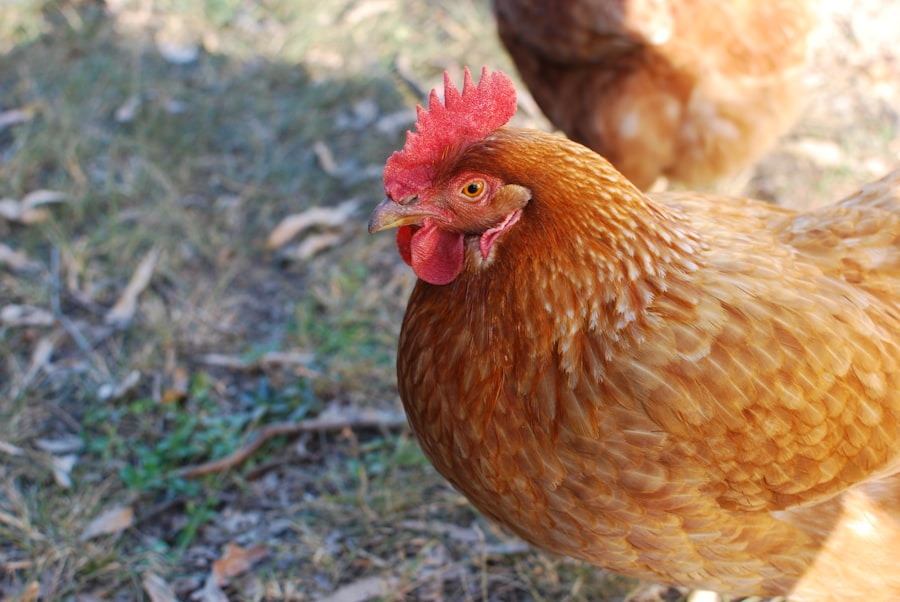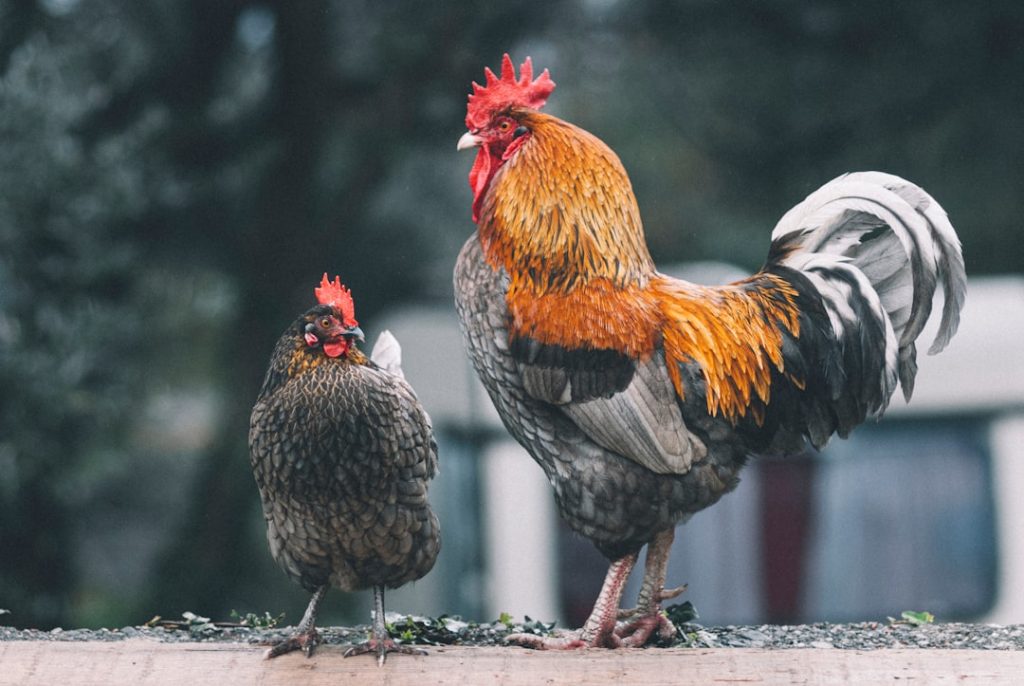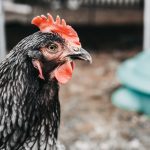Chicken loss on small farms can have significant emotional and financial impacts. These birds serve as both a source of income and a connection to the land for many small-scale farmers. When chickens disappear or fall prey to predators, farmers may experience feelings of personal violation and economic setback.
The substantial time and resources invested in raising and maintaining chickens can intensify the sense of loss. The financial strain resulting from chicken losses can be particularly challenging for small farm operations. Additionally, the emotional stress experienced by farmers and their families should not be underestimated.
To address this issue effectively, it is crucial to identify the potential causes of chicken loss and implement preventive measures. Seeking assistance from local agricultural authorities or poultry experts can provide valuable guidance in developing strategies to protect chicken flocks and mitigate future losses.
Table of Contents
Key Takeaways
- Losing chickens can be frustrating and disheartening for small farm owners
- Predators, disease, and poor housing are common reasons for the loss of chickens
- Taking proactive steps such as securing coops and regular health checks can prevent future losses
- The impact of losing chickens can be significant on the productivity and income of a small farm
- Seeking help from local authorities or experts can provide valuable guidance in preventing chicken loss
- The emotional toll of losing chickens can be overwhelming for small farm owners
- Moving forward after the loss involves implementing preventive measures and seeking support from the community
Possible reasons for the loss of chickens
Predation: A Major Threat
Predators such as foxes, raccoons, hawks, and even domestic dogs can pose a significant threat to free-ranging chickens. These animals are natural hunters and can easily prey on unprotected birds.
Diseases and Parasites: Silent Killers
Additionally, diseases and parasites can also contribute to the loss of chickens. Infectious diseases such as avian influenza or Newcastle disease can quickly spread through a flock, causing illness and death. Parasites such as mites, lice, and worms can weaken chickens and make them more susceptible to illness and predation.
Poor Housing and Inadequate Protection
Poor housing and inadequate protection can also make chickens vulnerable to attacks and disease. If coops and runs are not secure, predators can easily gain access to the birds. Furthermore, overcrowding and unsanitary conditions can lead to stress and illness among the flock, making them more susceptible to predation and disease.
Prevention is Key
Understanding these possible reasons for the loss of chickens is crucial in taking steps to prevent future losses.
Steps to prevent future losses

There are several steps that small-scale farmers can take to prevent future losses of chickens. One of the most effective measures is to improve the security of the chicken coop and run. This can be done by reinforcing fencing, adding locks to doors, and installing predator-proof mesh around the perimeter.
Additionally, providing adequate shelter and roosting space for the birds can help protect them from predators and harsh weather conditions. Regular cleaning and disinfection of the coop and run can also help prevent the spread of diseases and parasites. It’s important to monitor the health of the flock regularly and seek veterinary care if any signs of illness or infestation are observed.
Implementing biosecurity measures such as quarantining new birds and limiting visitor access to the farm can also help prevent the introduction and spread of diseases. Finally, providing proper nutrition and access to clean water can help strengthen the immune system of the birds, making them less susceptible to illness and predation. By taking these proactive measures, small-scale farmers can reduce the risk of losing chickens in the future.
The impact of losing chickens on a small farm
The impact of losing chickens on a small farm can be significant, both financially and emotionally. From a financial perspective, the loss of chickens can directly impact the income of the farm. These birds are often raised for their eggs or meat, and their loss can result in a decrease in revenue for the farmer.
Additionally, the cost of replacing lost birds or investing in improved security measures can further strain the farm’s finances. The emotional impact of losing chickens should not be underestimated either. For many small-scale farmers, these birds are more than just a source of income – they are part of the family.
The time and effort that goes into raising and caring for these animals creates a strong bond between the farmer and their flock. The loss of chickens can leave farmers feeling devastated, helpless, and even guilty for not being able to protect their birds. It’s important for farmers to acknowledge and address these emotional impacts in order to move forward after such a loss.
When facing the loss of chickens on a small farm, it’s important for farmers to seek help from local authorities or experts. Local agricultural extension offices or animal control agencies may be able to provide guidance on predator control measures, disease prevention, and biosecurity practices. These organizations may also offer resources such as workshops, training programs, and educational materials to help farmers better protect their flocks.
Additionally, seeking advice from experienced poultry farmers or veterinarians can provide valuable insights into best practices for raising healthy and secure chickens. These experts may be able to offer personalized recommendations based on the specific challenges faced by the farm. By reaching out for help from local authorities or experts, small-scale farmers can gain valuable knowledge and support in preventing future losses of chickens.
The emotional toll of losing chickens

The Bond Between Farmers and Chickens
Losing chickens on a small farm can have a profound emotional impact. These birds are often considered part of the family by farmers, who invest time, care, and affection into raising them. The loss of chickens can leave farmers feeling devastated, heartbroken, and even traumatized.
Common Emotional Reactions
It’s not uncommon for farmers to experience feelings of guilt, helplessness, and anger after such a loss. The emotional impact may also extend to other family members who have formed bonds with the birds. Children, in particular, may struggle to cope with the loss of their feathered friends.
Coping with Grief and Finding Support
It’s essential for farmers to acknowledge these emotions and seek support from friends, family, or mental health professionals if needed. Talking about their feelings and finding healthy ways to cope with grief can help farmers navigate through the emotional toll of losing chickens.
Moving forward after the loss
Moving forward after the loss of chickens on a small farm is a challenging but necessary process. By understanding the possible reasons for the loss, taking proactive steps to prevent future losses, seeking help from local authorities or experts, and addressing the emotional toll, farmers can begin to heal and rebuild their flocks. It’s important for farmers to remember that they are not alone in facing these challenges and that there is support available within their communities.
By learning from the experience and implementing improved practices, farmers can strengthen their farms and better protect their chickens in the future. While the frustration and emotional impact of losing chickens may linger, it’s possible for farmers to move forward with resilience and determination. With time, care, and support, small-scale farmers can overcome the loss of their chickens and continue to thrive in their agricultural pursuits.
If you’re struggling with keeping your chickens safe, you may want to consider upgrading your chicken coop. Poultry Wizard has a helpful article on chicken coop portage that can provide some valuable tips on how to improve the security of your coop and prevent further losses. Check it out here.
FAQs
What are common reasons for losing chickens?
Common reasons for losing chickens include predators such as foxes, raccoons, hawks, and snakes, as well as disease, accidents, and theft.
How can I protect my chickens from predators?
To protect your chickens from predators, you can use secure fencing, lock them in a coop at night, install motion-activated lights or sound devices, and use guard animals such as dogs or guinea fowl.
What are some signs of disease in chickens?
Signs of disease in chickens include decreased egg production, lethargy, loss of appetite, respiratory issues, abnormal droppings, and unusual behavior.
What should I do if I suspect my chickens are sick?
If you suspect your chickens are sick, it’s important to isolate the affected birds, consult a veterinarian who specializes in poultry, and follow their recommendations for treatment and prevention.
How can I prevent accidents from happening to my chickens?
To prevent accidents from happening to your chickens, you can keep their coop and run clean and free of hazards, provide proper ventilation and lighting, and regularly inspect and maintain their living environment.
Meet Walter, the feathered-friend fanatic of Florida! Nestled in the sunshine state, Walter struts through life with his feathered companions, clucking his way to happiness. With a coop that’s fancier than a five-star hotel, he’s the Don Juan of the chicken world. When he’s not teaching his hens to do the cha-cha, you’ll find him in a heated debate with his prized rooster, Sir Clucks-a-Lot. Walter’s poultry passion is no yolk; he’s the sunny-side-up guy you never knew you needed in your flock of friends!







